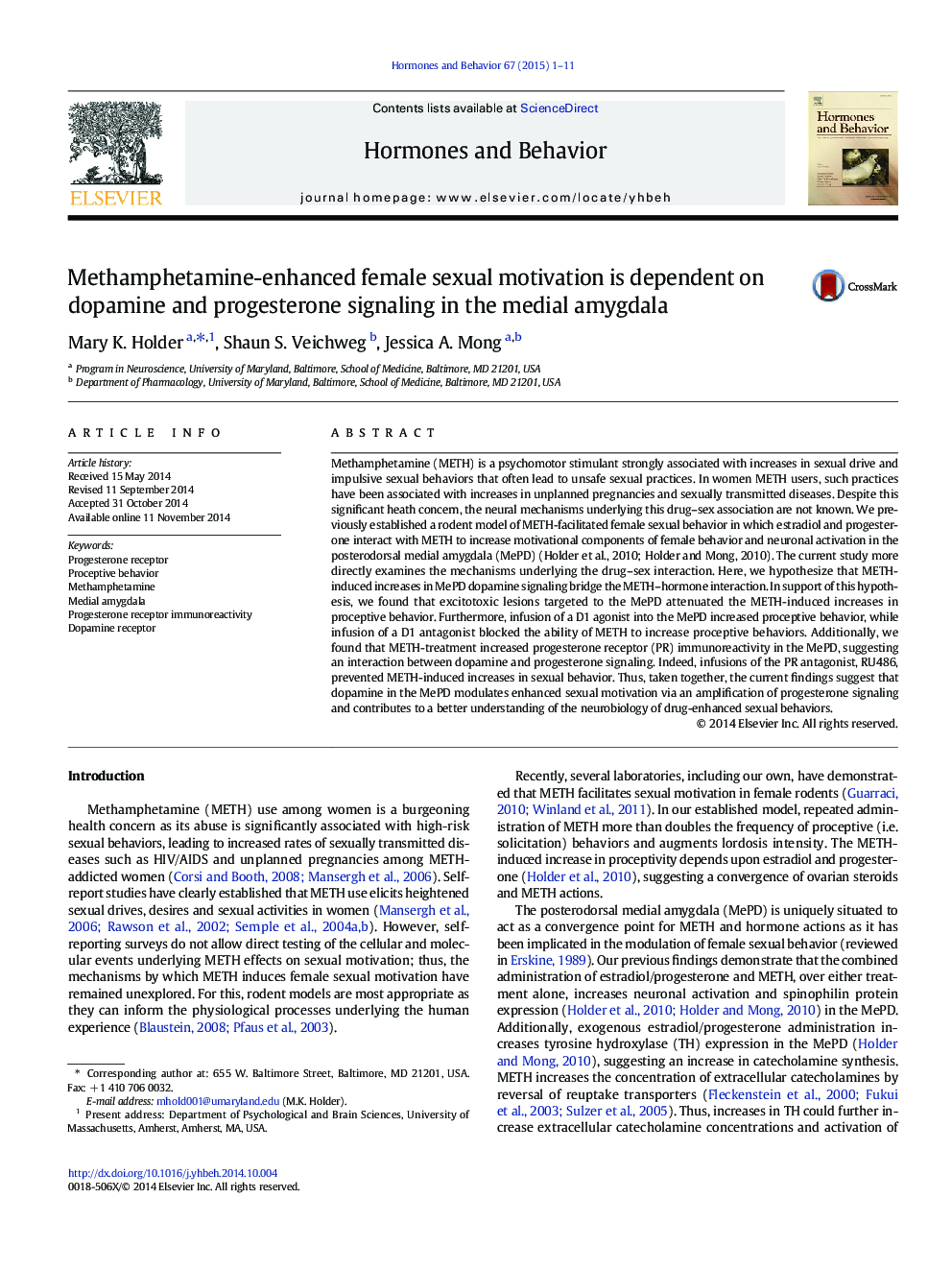| Article ID | Journal | Published Year | Pages | File Type |
|---|---|---|---|---|
| 322681 | Hormones and Behavior | 2015 | 11 Pages |
•A mechanism for enhanced proceptivity by methamphetamine is proposed.•The role of the posterodorsal medial amygdala is examined.•Dopamine receptors are necessary and sufficient for the enhanced proceptivity.•Methamphetamine increases progestin receptors in medial amygdala.•Progestin receptors are necessary for the enhanced proceptivity.
Methamphetamine (METH) is a psychomotor stimulant strongly associated with increases in sexual drive and impulsive sexual behaviors that often lead to unsafe sexual practices. In women METH users, such practices have been associated with increases in unplanned pregnancies and sexually transmitted diseases. Despite this significant heath concern, the neural mechanisms underlying this drug–sex association are not known. We previously established a rodent model of METH-facilitated female sexual behavior in which estradiol and progesterone interact with METH to increase motivational components of female behavior and neuronal activation in the posterodorsal medial amygdala (MePD) (Holder et al., 2010; Holder and Mong, 2010). The current study more directly examines the mechanisms underlying the drug–sex interaction. Here, we hypothesize that METH-induced increases in MePD dopamine signaling bridge the METH–hormone interaction. In support of this hypothesis, we found that excitotoxic lesions targeted to the MePD attenuated the METH-induced increases in proceptive behavior. Furthermore, infusion of a D1 agonist into the MePD increased proceptive behavior, while infusion of a D1 antagonist blocked the ability of METH to increase proceptive behaviors. Additionally, we found that METH-treatment increased progesterone receptor (PR) immunoreactivity in the MePD, suggesting an interaction between dopamine and progesterone signaling. Indeed, infusions of the PR antagonist, RU486, prevented METH-induced increases in sexual behavior. Thus, taken together, the current findings suggest that dopamine in the MePD modulates enhanced sexual motivation via an amplification of progesterone signaling and contributes to a better understanding of the neurobiology of drug-enhanced sexual behaviors.
